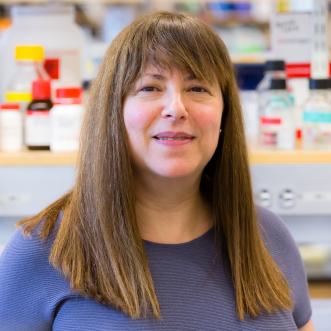




Candidate Plasticity Genes
To understand the cellular mechanisms that underlie activity-dependent plasticity in the developing and adult brain, we are identifying and characterizing the participating genes and the function of the proteins they encode. This work began with the cloning of a large number of activity-regulated genes that we termed candidate plasticity genes (CPGs). It turned out that the CPG pool is highly enriched for genes important for neuronal survival, connectivity, and synaptic transmission, suggesting that activity-regulated genes are critical for the development and function of brain circuits.
We have elucidated the neuronal and synaptic function of two previously unknown CPGs, CPG2 and CPG15, and characterized their very different activities, showing that each provides unique insight into diverse aspects of plasticity mechanisms. Both molecules have subsequently become well known, CPG15 (later name neuritin) as an extracellular ligand with multiple roles (also outside the nervous system), and CPG2 as a product of SYNE-1, one of the best genetic hits for bipolar disorder. These two genes are still the focus of some research projects in the lab. Recently, we have returned to the CPG pool for identification of additional genes of interest.
Structural Plasticity in Cortical Circuits
Motivated by the large number of CPGs that affect neuronal structure, we have also been collaborating with Peter So’s lab in the Department of Mechanical Engineering at MIT to develop multi-photon microscopy for large volume, high resolution imaging of dendritic arbor and synaptic structural dynamics in vivo. Using this system, we have chronically imaged and reconstructed the dendritic trees of neurons in visual cortex of thy1-GFP transgenic mice through surgically implanted cranial windows. Our lab was the first to show unambiguous evidence of dendritic growth and retraction and of branch tip additions in the adult brain. Surprisingly, our data singled out GABAergic interneurons as those capable of structural dynamics, suggesting that circuit rearrangement is restricted by cell type-specific rules.
By combining chronic two-photon microscopy in vivo with classic visual manipulations, we showed that experience drives structural remodeling of superficial cortical layer 2/3 interneurons in an input- and circuit-specific manner. Recently, we have developed methods for labeling and chronic monitoring of excitatory and inhibitory synapses across entire neuronal arbors in the mouse visual cortex in vivo. We are currently using these methods to examine different types of input onto layer 2/3 pyramidal cells, as well as the timing of constructive and destructive events in terms of pre and postsynaptic components.
Elly Nedivi received her Ph.D. in Neuroscience from Stanford University Medical School and completed her postdoctoral training at The Weizmann Institute in Israel. In 1998, after two years at Cold Spring Harbor Laboratory, she joined the faculty of the Department of Brain and Cognitive Sciences and the Picower Institute for Learning and Memory at MIT. She also has an appointment in the Department of Biology at MIT.
Krieg Cortical Kudos Discoverer Award, 2023
BCS Award for Excellence in Undergraduate Teaching, 2018
Aygul Balcioglu
Research Associate
Josiah Boivin
Postdoctoral Fellow
Kendyll Burnell
Technical Assistant
Jisang Lee
Technical Assistant
Phoebe Lee
Technical Assistant
Charles Moss
Administrative Assistant
Dalila Ordonez
Postdoctoral Associate
Daniela Molina Palacios
Technical Assistant
Baovi Vo
Postdoctoral Fellow